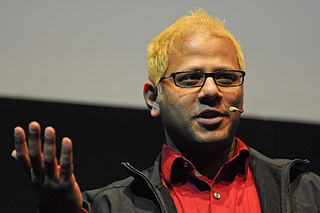A Quote by Crispin Blunt
The private sector complains that some of the agencies set up to advise and assist them in protecting their networks, such as CESG, are good at gathering information, but reluctant to disseminate it. This culture of information hoarding has to be changed.
Related Quotes
Well, there's a question as to what sort of information is important in the world, what sort of information can achieve reform. And there's a lot of information. So information that organizations are spending economic effort into concealing, that's a really good signal that when the information gets out, there's a hope of it doing some good...
Well, there's a question as to what sort of information is important in the world, what sort of information can achieve reform. And there's a lot of information. So information that organizations are spending economic effort into concealing, that's a really good signal that when the information gets out, there's a hope of it doing some good.
I think there's confusion around what the point of social networks is. A lot of different companies characterized as social networks have different goals - some serve the function of business networking, some are media portals. What we're trying to do is just make it really efficient for people to communicate, get information and share information.
The normal way of gathering information is through sound: when you hear information that you want to gather, you look in its direction, you see what it is, if you choose you can get closer, you can see it, you can touch, and then, finally, the most committed form of data gathering is to taste it and eat it. But for the urbanite, we're cut off from our primary sense, and I want to stress that - our primary sense of gathering information about the place that we're living in - and instead, we're in a war zone.
Groups are only smart when there is a balance between the information that everyone in the group shares and the information that each of the members of the group holds privately. It's the combination of all those pieces of independent information, some of them right, some of the wrong, that keeps the group wise.
If you're tired of getting additional information, you can just close your eyes, get some sleep. But earlids, covering of the ears, never evolved. Not once do we find it, even in the fossil records. Because while we let our eyes relax, our ears are still hearing. And that's why alarm clocks work and wake us up. We still gather information. Every animal is gathering information 24/7. So I like to think of acoustic ecologists as people who are trying to become better listeners, 24/7.































